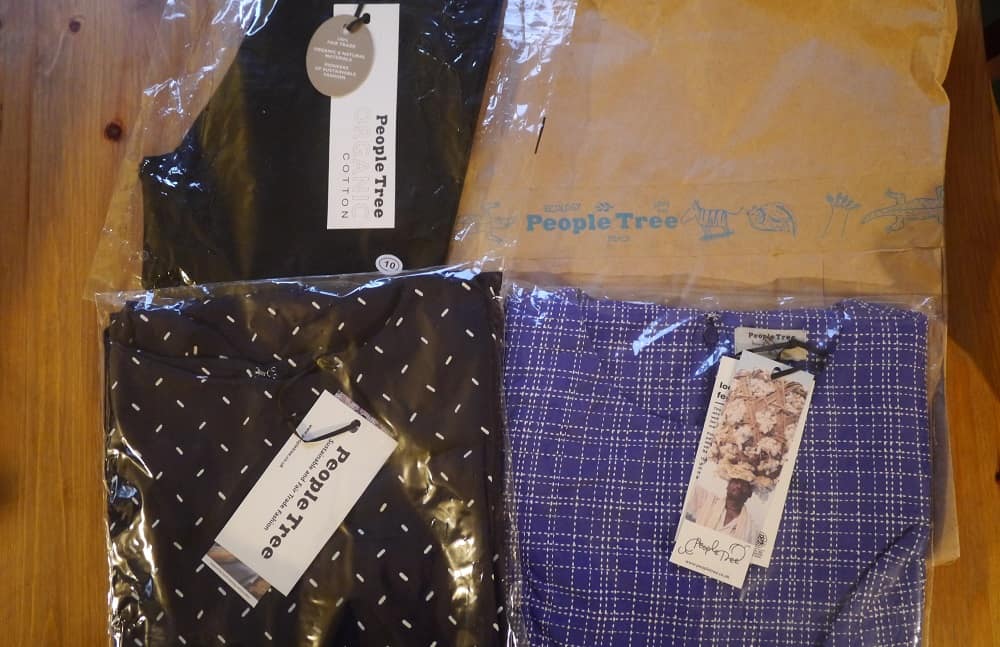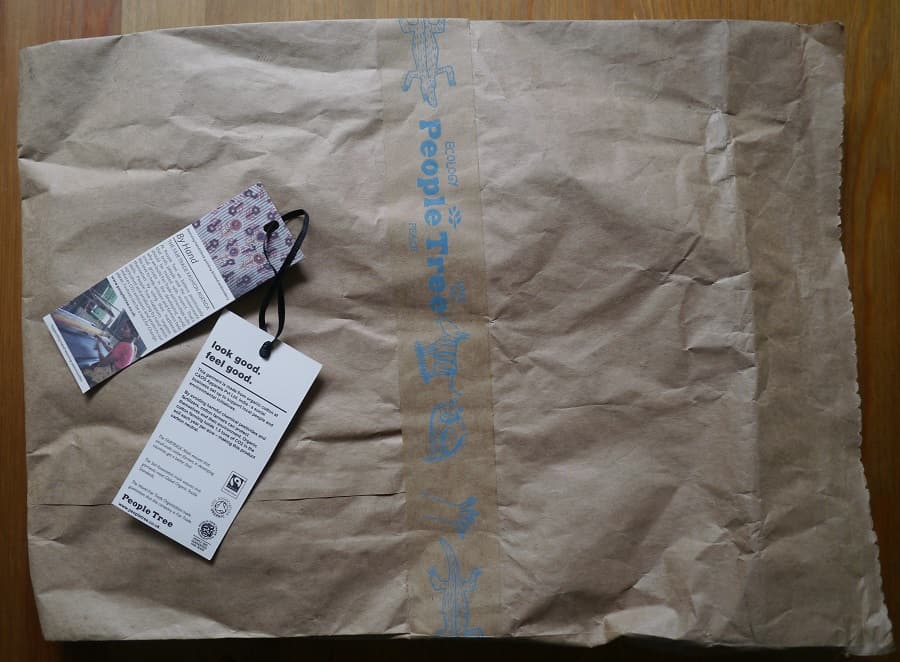My (Mis)Adventure with Sustainable Fashion
I’m certainly not a fashion victim. In fact, I wonder if the clothes I wear can even be called fashion, seeing as I’ve owned most of them for more than three years, and they were purchased second-hand back then. So when I say sustainable fashion, I guess what I really mean is sustainable clothes.
Over the years my clothing shopping habits have changed. Whilst today I try to buy as little as possible, I confess there was a time when I used to see clothes shopping as a fun way to spend time. Luckily, I didn’t see it as a fun way to spend money (which I’m sure has saved me a small fortune over the years!), so I tried to stick to things I really liked and that I thought would last, and would only shop a few times a year.
I’ve never been a fan of cheap throwaway fashion: inexpensive items wear out quickly and lose their shape, and I want the clothes I own to get many outings. More than that, I’ve always been a believer that if something seems too cheap, it is; somewhere along the line, someone has suffered. I’d opt for the more expensive high street stores hoping that if the prices were higher, it meant there was no exploitation going on behind the scenes.
The switch from new to second-hand came slowly, and actually, thanks to eBay. I’ve never particularly enjoyed clothes shopping in charity shops, but here on the internet I could find the size and styles that I wanted in the brands that I already knew. Giving a second life to somebody else’s waste, and not contributing directly to these fashion giant’s coffers rests better with my conscience, and I committed to try to avoid buying anything new (underwear excluded).
In the last year or so, two things have made me wonder if this is enough. There’s always the question “can I do more?” Sometimes the answer is no, but often it is yes, and I wondered if there was more I could do with the clothing I chose to wear. In particular, I had two concerns.
How Can I Live a Plastic-Free Life With a Wardrobe Full of Plastic?!
I buy my clothes second hand, wear them to within an inch of their lives, cut them up and use them as rags for cleaning…but ultimately they need to be disposed of, and I am faced with two choices. Compost, or landfill. Plastic fibres will not break down in compost. (They’re actually not great as cleaning cloths, either.) Natural fibres make much better cleaning cloths, and can be composted at the end of their lives.
When I looked at the contents of my wardrobe, only a handful of items were made of natural fibres (silk, cotton and wool). The vast majority are polyester (with some acrylic and nylon). Polyester is plastic. This has sat a little uneasily with me ever since I began my plastic-free living journey, but what really clinched it was when I first read that plastic microfibres are washed into the ocean every time we launder our (synthetic fabric) clothes. I feel that now I’ve got my all the plastic-free fundamentals of my life (shopping, eating, washing and cleaning) under control, this is something I want (and need) to tackle.

As I minimalise my wardrobe, ethical and Fairly Traded garments made from sustainable and natural fibres are my new priority : )
Is “Hoping” that Clothing is Sustainably Made, Ethically Produced and Sweatshop-Free Enough?
The answer to this, quite clearly, is no. Avoiding clothing at rock-bottom prices is a no-brainer, but assuming (or hoping) that just because a clothing company charges more for its products that the farmers and workers have been treated fairly… It’s a big ask. And it’s a question I’ve not even been asking.
Fair Trade fashion is a growing industry, with clothing that looks less like old sacking and more like regular high street wear than some of the earlier attempts I remember. Whilst I’m a huge fan of second-hand clothing, I also think it’s important to support companies who stand for ideals we believe in. I guess there needs to be balance. (Second-hand Fair Trade clothing would be my ideal, but there’s a lot less of it around!)
My Misadventure with Sustainable Fashion
With this in mind, I have decided that my vision for my wardrobe is one where the majority of the items are made of natural fibres, that the majority are organic and / or Fair Trade, and that a significant amount is second-hand. Second hand items aside, this is the total opposite to my current wardrobe. Change will be a slow process, I’m sure, as I still have a commitment to myself to reduce (half) my wardrobe, and I intend to wear the current items out before replacing them. (Or maybe that’s my excuse as I find it really, really hard to declutter my wardrobe!)
In some rather exciting news for the minimalist-wannabe-but-closet-hoarder that I am, I actually managed to wear out a pair of black leggings (to the point where they were almost see-through) and decided their replacement would be my first organic natural fibre Fair Trade purchase. Then, because the postage was a flat fee I also bought two organic Fair Trade dresses for work – which I justified because I literally wear the same skirt to work every day, and thought I should probably invest in another outfit. (Did I need two? Possibly not. Oops.)
Feeling rather noble about my purchases, I was very pleased when they arrived in a brown paper bag, looking all environmentally friendly. At last! A sustainable solution! And then I looked inside.
Plastic!

Organic cotton clothing, Fairly Traded, ethically produced…and packaged in plastic!
I haven’t bought new clothing online in so long, it didn’t even cross my mind that the items would come individually packaged in plastic. I purchased these in July, so ironically, in the one month of the year where I aim to make the biggest effort to consume no plastic, I end up accumulating more than in the entire rest of the year put together!

People Tree packaging – plastic-free heavy duty brown paper envelope, labels made of card attached to the clothing with ribbon (possibly plastic but at least reusable). If only the items themselves didn’t come in plastic bags!
So often when trying to make “green” and ethical decisions we have to compromise, and it can be frustrating! Clearly I’m committed to not buying anything in plastic, so shopping like this isn’t going to work for me. I’d also far rather find local shops and avoid online shopping altogether. Then again, living in one of the most isolated cities in the world makes this tricky. People Tree is a brand is championing the values that I think are so important – chemical-free crops, Fair Trade, capacity building, ethical supply chains – and I want to support them.
An Ethical Dilemma – What Next?
One thing I’ve learned on this journey is to ask questions. Maybe there’s an option for purchasing items without plastic packaging. Maybe there’s a good reason why they don’t offer this. Maybe they’ve just never thought about it before. My first step is to write a letter to express my concerns, and see if I can get any answers. (I might mention replacing the ribbon with natural twine, too.) Plus I’ll be recycling the plastic bags (our local supermarket collects soft plastic like this for recycling).
My second step is to look for in-store options (next time I need to replace something though…not before). For example, People Tree stock over 1000 stores, so there must be the option to buy in-person, and avoid all the unnecessary extra packing and shipping. They are also not the only Fair Trade and organic brand out there. An exciting journey of discovery awaits!
And of course, as I start to discover these brands, there will be the option of looking for them online (or even in stores) in the second-hand marketplace. It’s also easier to request plastic-free packaging when you’re buying from an individual, items are usually cheaper, and you’re giving a new lease of life to somebody else’s waste.
Sometimes making sustainable choices isn’t easy. Often we are faced with hurdles. Giving up or accepting defeat isn’t an option. If we care enough, if we want to live a life aligned with our values, then we need to keep trying. I may have tripped, but I intend to get back up, dust myself off, learn from what’s happened and keep going. After all, even when we stumble, we are still moving forward.
Now I’d love to hear from you! Have you tried to make a sustainable choice that’s backfired? What did you learn from it? How do you deal with compromise? Do you have some non-negotiables – rules you’ve set yourself that you’ll never bend, or is everything open to compromise depending on the situation? What about sustainable fashion? Have you taken steps to make your wardrobe more ethical or environmentally-friendly? What did you find easy? What do you struggle with? Do you have any tips you’d like to share? Please tell me your thoughts in the comments below!
[leadpages_leadbox leadbox_id=1429a0746639c5] [/leadpages_leadbox]



